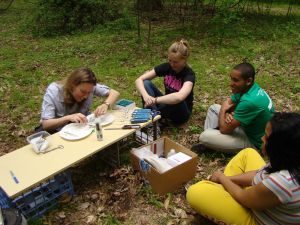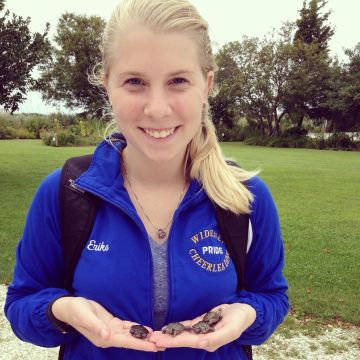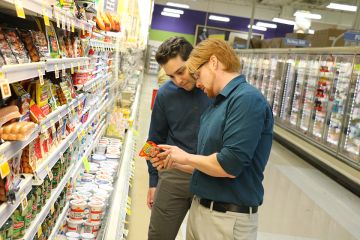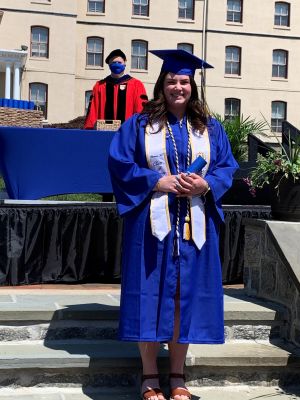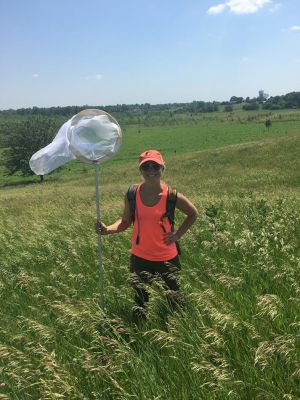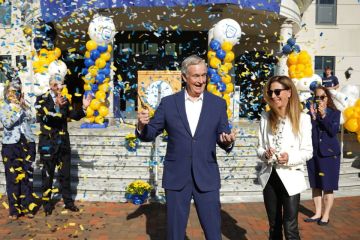Widener Summer Research Program Prepares Undergrad Students for PhD Success

The summer months at Widener University can be a time for undergraduate students to discover a passion for research and embark on life-changing academic journeys.
The Summer Undergraduate Research & Creative Activities (SURCA) program gives them the opportunity to pursue research alongside top-notch faculty, hone career skills, and present to the university community – creating a foundation for some to enter prestigious PhD programs and lead research on important topics, ranging from monarch butterfly movement to brain activity associated with Parkinson’s disease.
Take, for example, Kelsey Fisher ’13.
As a first year biology major, she wasn’t necessarily looking to conduct summer research. But the prospect of staying on campus through the summer months was appealing, so she decided to give it a go.
“I didn’t know what I was getting myself into,” said Fisher, who began working with biology associate professors Kate Goodrich and Janice Krumm to study why tulip-tree beauty moth caterpillars were feeding on four different kinds of plants.
I really liked it and I decided to come back every summer for research. I really liked the freedom I had, to ask questions and figure out answers. — Kelsey Fisher
Fisher is still asking those questions. Her first summer research experience set her on a journey that led away from her originally intended career path of physical therapy to scientific inquiry.
In May, Fisher completed a doctorate in entomology from Iowa State University. She continues to explore the feeding behaviors and movements of insects and their interactions with plants, specifically studying monarch butterflies now at Iowa State as a postdoctoral research associate. Fisher’s goal is to serve as a government research scientist, working on science that can inform policy decisions on such matters as land management and protecting endangered species.
Fisher credits Widener, and the summer research program specifically, with putting her on the road to success. Even though the program has undergone name changes over the years, it is a long-standing tradition and example of commitment to undergraduate research at Widener.
Fisher developed close relationships with her professors, particularly Goodrich, who she still speaks with monthly.
“Kate had such a huge influence on my life and everything I do,” said Fisher. “If it wasn’t for her, I’d be doing something completely different.”
Cultivating Curiosity
The SURCA program gives undergraduate students across many departments, from science to psychology to business, an opportunity to conduct in-depth research outside the typical academic year, and often without the time constraints of classes and extracurricular activities.
“It gave me an opportunity to broaden my research experience without also having classes,” said Erika Dahl ’15. “I spent a lot more time delving into why I was doing the research, creating an experimental plan, and executing it.”
As a biology major, Dahl worked with Professor Itzick Vatnick to investigate various physiological preferences of hatchling and juvenile diamondback terrapins and with Professor Hemlata Mistry to study the development of fruit flies.
“It really cultivated the curiosity that is needed for a PhD,” Dahl said. “First you must be excited about the project, but the second part is being able to communicate that research to other scientists and the general public. That is what excited me.”
Dahl recently graduated with a PhD in Biomedical Sciences from The Penn State College of Medicine in Hershey. When she defended her dissertation on the initiation and progression of ovarian cancer, both Vatnick and Mistry were present virtually to cheer her on.
“Widener is a great university that gives you the one-on-one opportunity to learn from professors with PhDs and to get that first touch of research knowledge that can then take you to further education or into the workforce,” Dahl said.
Dahl now works as a life sciences consultant for Fenix Group International and specializes in oncology.
Training to Become a Researcher
Similarly, Vasilios Ikonomou ’19 explored clinical and research psychology career tracks at Widener and narrowed down his interests in the lab of Associate Professor Luke Ayers.
Ayers’ research focuses on how states of hunger influence food preferences and eating habits, and Ikonomou used the summer between his junior and senior years to lead his own related research project to assess the fitness population.
“The research was the fun part of my degree,” the psychology major remembered. “These experiences – from conceptualization to publication – are what mattered, and they wouldn’t have happened if I had just gone to classes.”
Ikonomou credits learning the research process, including writing a literature review, seeking Institutional Review Board (IRB) approval, and presenting at the annual symposium, with helping him on the path to graduate school.
He graduated in May from Saint Joseph’s University with a master’s degree in experimental psychology and will continue his studies in the competitive field of clinical neuropsychology. He is beginning a doctoral degree in clinical and counseling psychology at the University of South Alabama.
Each summer, research students often expand and lead in new directions research that began with students who came before them. That was the case for Victoria Mayer ’21.
She switched majors from finance to psychology during junior year. After taking a course with Ayers, she knew she wanted to explore the research track of psychology and work in his lab on the food research that students like Ikonomou had started.
However, when the COVID-19 pandemic struck, Mayer switched from food research to a project focused on a more pressing issue: the impact of pandemic stress on functionalities. Her findings were presented at the annual SURCA symposium held annually in the fall.
“I definitely benefited from learning how to talk about my research, especially with people who weren’t in the psychology field,” she said. “It helped me with getting into graduate school.”
Mayer graduated in May and is going directly from undergraduate studies to a doctoral program in biomedical science at the University of South Dakota. She will be concentrating on neuroscience and conducting research on the brain activity associated with the cognitive symptoms of Parkinson’s disease.
From Mentorships to Career Readiness
The SURCA program provides students with ongoing opportunities to learn career-readiness skills that they can take with them long after Widener. The students, across all disciplines, meet weekly to discuss their research and practice these skills.
Fisher said she benefitted from the summer research program’s resume writing workshops and, through the program, learned how to read scientific papers and design science presentation posters. Both skills served her well when she reached graduate school, and now Fisher imparts that knowledge and those strategies to the undergraduate students she mentors at Iowa State.
“Looking back, I learned a lot and I didn’t even realize it would be useful at the time,” said Fisher. “Summer research is a great opportunity to learn about your field and about yourself.”
Many students also gain lifelong mentors after completing summer research, and find that faculty can help them navigate the process of applying to and completing graduate school.
For Mayer, conversations with Ayers and other faculty opened her eyes to the possibilities.
“I was shocked you could go right into a doctoral degree path,” she said. “It’s been beneficial to get to know my professors, and they’ve been really supportive and positive during this time.”
Ikonomou agreed, saying the psychology department “felt like a village.”
“One thing I really liked about Widener was the open-door policy. You go into a professor’s office and they are always willing to talk to you,” Ikonomou added. “Having that support made all the difference.”
